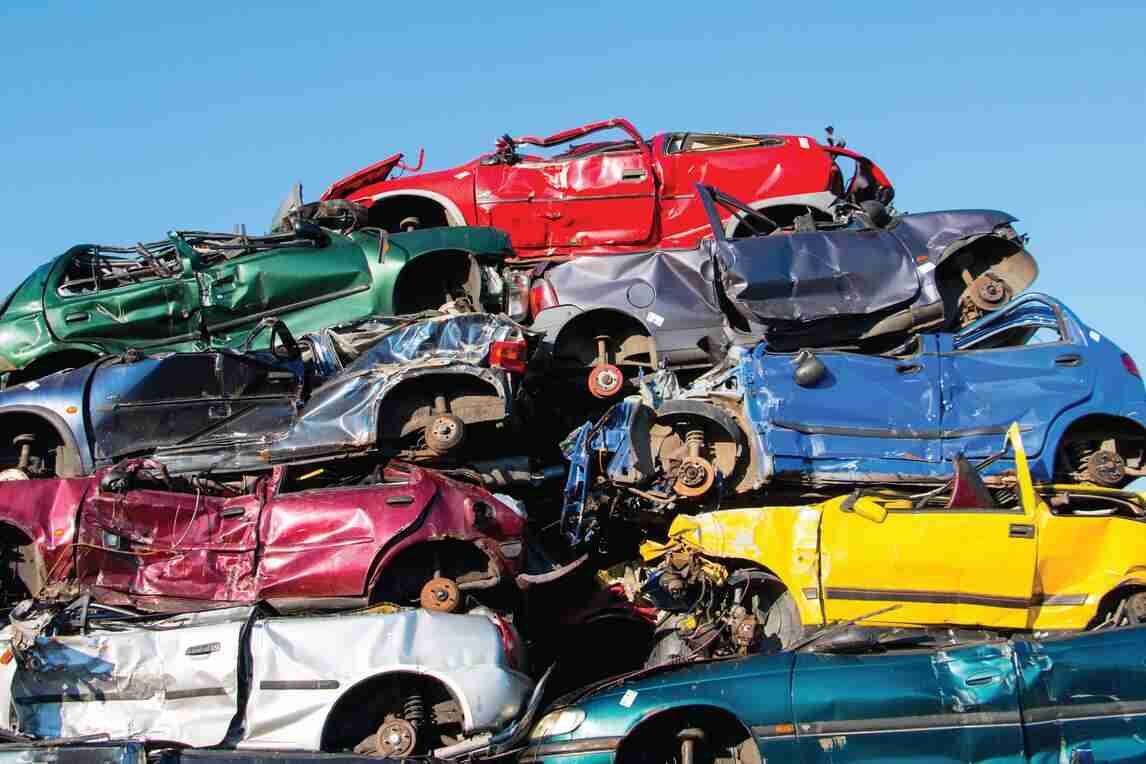Vehicle Scrappage Policy: A Comprehensive Guide to Upgrading Your Car
Introduction
As car owners, we often develop a sentimental attachment to our vehicles, holding on to them for years on end. However, this practice has adverse effects on the environment, contributing to increased carbon emissions and air pollution. To address this issue, the Indian government introduced the Vehicle Scrappage Policy in the 2021 budget. This policy aims to reduce the impact of older vehicles and the pollution they generate. In this article, we will delve into the details of the Vehicle Scrappage Policy, its benefits, and how it can help create a cleaner and greener future.
Understanding the Vehicle Scrappage Policy
The Vehicle Scrappage Policy is an initiative designed to create new rules for retiring private and commercial vehicles in a manner that establishes an ecosystem for the proper disposal of polluting and unfit vehicles. Under this policy, vehicles will be scrapped at automated testing stations and government-registered vehicle scrapping facilities across the country. Private vehicles older than 20 years and commercial and government vehicles older than 15 years will be destroyed or scrapped. Before re-registration, these vehicles will need to undergo and pass a fitness test. Failure to meet the fitness standards will result in the scrapping of the vehicle.
Highlights of the Vehicle Scrappage Policy Announcement
The announcement of the Vehicle Scrappage Policy brings several benefits and incentives for vehicle owners who opt for scrapping their old vehicles. Here are the key highlights:
- Scrap Value: Vehicle owners who choose to scrap their vehicles will receive a scrap value equivalent to 4 to 6% of the ex-showroom price of the new vehicle they intend to purchase.
- Waivers on Registration Fees: Owners who present a vehicle scrapping certificate when purchasing a new vehicle will be exempted from paying the new vehicle registration fees.
- Concessions on Motor Vehicle Tax: New vehicle owners will be eligible for concessions of up to 25% for non-transport vehicles and up to 15% for transport vehicles on the motor vehicle tax.
- Discounts from Manufacturers: The government has advised vehicle manufacturers in India to offer a 5% discount on the purchase of a new vehicle to buyers who present a vehicle scrappage certificate.
Categorization of Vehicles Under the Scrappage Policy
The Vehicle Scrappage Policy categorizes vehicles into different groups based on their age and purpose. Here is a breakdown of the categorization:
- Government Vehicles: Vehicles belonging to India’s Central and State Governments will be scrapped if they are more than 15 years old.
- Commercial Vehicles: All commercial vehicles will have to undergo a fitness test after completing 15 years. If they pass the test, they will be renewed for 5 years. However, if they fail the fitness test, they will be scrapped.
- Private Vehicles: Private vehicles will also undergo a fitness test after completing 20 years. If they pass the test, they will be renewed for 5 years. If they fail, they will be scrapped.
- Vintage Vehicles: Vintage vehicles, which are more than 50 years old, are currently exempted from the Vehicle Scrappage Policy.
Benefits of the Vehicle Scrappage Policy
The implementation of the Vehicle Scrappage Policy offers numerous benefits for both the environment and the economy. Let’s explore some of these benefits:
Environmental Benefits
One of the primary objectives of the Vehicle Scrappage Policy is to reduce air pollution and safeguard the environment. By scrapping old and polluting vehicles, the policy aims to:
- Reduce Emissions: Older vehicles are often less fuel-efficient and emit higher levels of pollutants. Scrapping these vehicles will lead to a significant reduction in carbon emissions and air pollution.
- Promote Electric Vehicles: The scrappage policy encourages the adoption of electric vehicles by providing incentives for their purchase. Electric vehicles are more environmentally friendly and contribute to cleaner air.
Economic Benefits
In addition to the environmental advantages, the Vehicle Scrappage Policy also offers several economic benefits. These include:
- Job Creation: The scrappage policy is expected to create new job opportunities in the automobile sector. As more vehicles are scrapped, there will be a demand for skilled labor in vehicle testing, recycling, and manufacturing.
- Boost to the Automobile Industry: The policy is likely to stimulate the automobile industry by increasing the demand for new vehicles. Vehicle manufacturers and dealers will experience a surge in sales, leading to higher profits and economic growth.
- Incentives for Vehicle Owners: Vehicle owners who choose to scrap their old vehicles can take advantage of various incentives, such as waivers on registration fees, discounts on new vehicle purchases, and concessions on motor vehicle tax.
FAQs
To address common queries regarding the Vehicle Scrappage Policy, here are answers to some frequently asked questions:
Q: What is the primary reason for introducing the vehicle scrappage policy?
The primary reason behind the vehicle scrappage policy is to reduce environmental pollution and provide growth opportunities to the automobile industry.
Q: What does a fitness check comprise?
A fitness check entails a comprehensive inspection of a vehicle’s safety equipment, including seat belts, airbags, pollution tests, headlight alignment, indicators, brakes, engine components, and rusting of parts.
Q: When will the policy come into effect?
Private vehicles that are more than 20 years old will be de-registered starting from June 1, 2024, while commercial vehicles that are more than 15 years old will be de-registered from April 1, 2023.
Please note that the information provided in this article is subject to change, and it is advisable to refer to the official sources for the most up-to-date details regarding the Vehicle Scrappage Policy.
Conclusion
The Vehicle Scrappage Policy is a significant step towards creating a cleaner and greener future for India. By encouraging the scrapping of old and polluting vehicles, the policy aims to reduce air pollution, promote the adoption of electric vehicles, and stimulate economic growth. Vehicle owners can take advantage of the incentives and benefits offered under the policy when opting for vehicle scrappage. As we move forward, it is crucial to support initiatives like the Vehicle Scrappage Policy to create a sustainable and environmentally friendly transportation system in the country.
Remember, to contribute to a cleaner and greener future, we must embrace the Vehicle Scrappage Policy and make informed choices when it comes to upgrading our vehicles. Let’s drive towards a better tomorrow, one scrapped vehicle at a time.




